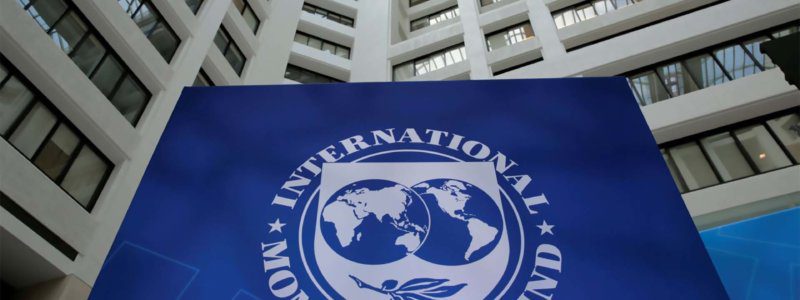
The International Monetary Fund (IMF) staff and the Ukrainian authorities have reached agreement on economic policies for a new 14-month Stand-By Arrangement (SBA), which will replace the arrangement under the Extended Fund Facility (EFF), approved in March 2015 and set to expire in March 2020. “The new SBA, with a requested access of SDR 2.8 billion (equivalent to $3.9 billion), will provide an anchor for the authorities’ economic policies during 2019,” the IMF said in a statement on Friday.
According to the statement, the agreement is subject to IMF management approval and approval by the IMF Executive Board. Board consideration is expected later in the year following parliamentary approval of a government budget for 2019 consistent with IMF staff recommendations and an increase in household gas and heating tariffs to reflect market developments while continuing to protect low-income households.
The IMF says that building on progress made under the EFF arrangement in reducing macro-economic vulnerabilities, the new agreement will focus in particular on continuing with fiscal consolidation and reducing inflation, as well as reforms to strengthen tax administration, the financial sector and the energy sector.
“The agreement reached today reflects the IMF’s commitment to continue to help Ukraine achieve stronger, sustainable, and inclusive economic growth,” the IMF said.
The Ukrainian authorities’ steadfast and effective implementation will be critical for the program to achieve its objectives, it added. According to the IMF, the new program has been developed in close coordination with the World Bank and the European Union, who have parallel operations to support Ukraine. As reported, the four-year-EFF program worth SDR 12.348 billion (about $17.46 billion at the current forex rate) was launched in March 2015 with a first disbursement of $5 billion. It originally suggested a quarterly review of the program, the allocation of three more tranches worth SDR 1.18 billion each in 2015 and a reduction in quarterly disbursements in 2016-2018 to SDR 0.44 billion ($0.61 billion).
Under the ongoing program, Ukraine has managed to receive a second tranche worth $1.7 billion early in August 2015 with a little delay, which was followed by a long break as Ukraine had failed to meet a number of conditions, which was aggravated by the political crisis and government reshuffles.
Talks on further financing resumed after the appointment of a new Cabinet of Ministers headed by Volodymyr Groysman in April 2016. However, the IMF decided to issue a third disbursement worth $1 billion only in the middle of September 2016 and a fourth one on April 3, 2017.
Since July 2017 Ukraine has been in a complicated negotiating process with the IMF on the gas issue. The IMF insists on raising the price of gas for the population, which, according to various estimates, may range from 30% to 60% due to rising prices in international markets, while the prime minister had previously pointed out the irrationality of such a sharp increase.
The Fund’s position is quite tough, as the government last year decided to raise gas prices that allowed Ukraine to receive a tranche from the IMF, but subsequently unilaterally refused to implement it. Only on Friday, October 19, the government decided to raise gas prices for the population by 23% from November 1, but their new level is still significantly lower than the prices for industry.